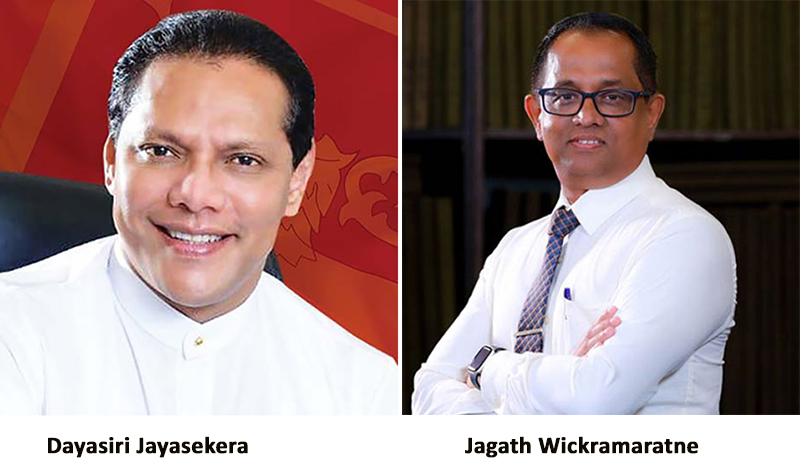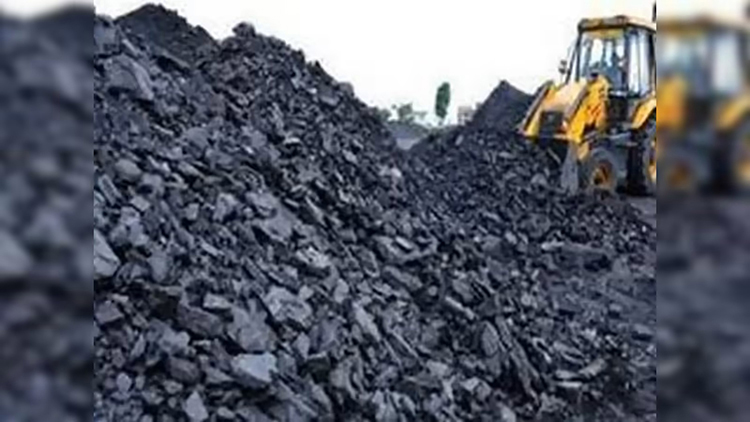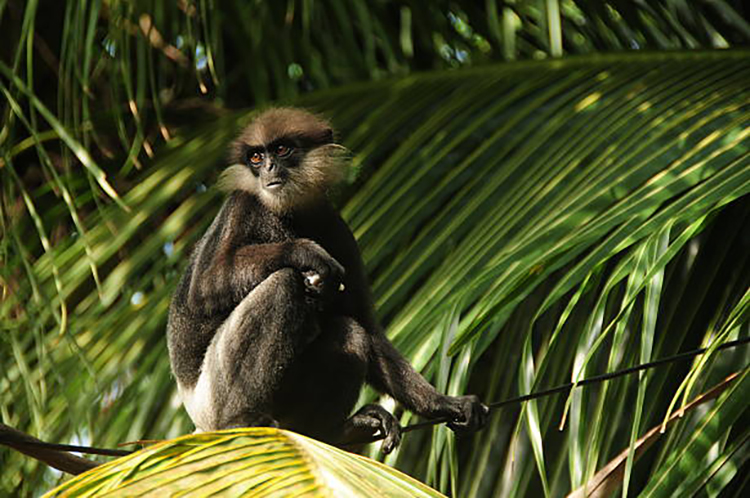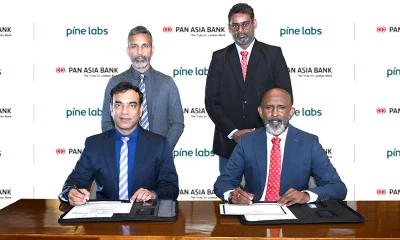News
Speaker reminds MPs that no one is above the law

By Akitha Perera
Speaker Jagath Wickramaratne told the MPs on Wednesday (05)) that no elected representative including ministers and MPs was above the law. He said so following a heated exchange with Jaffna District Independent MP Dr Ramanathan Archuna over a privilege issue related to a traffic incident.
The dispute arose when MP Archuna raised concerns in Parliament regarding an alleged confrontation with traffic police while travelling from Jaffna to Colombo. During his remarks, the MP deviated from his pre-submitted statement, describing the Speaker’s handling of the matter as “shameful” and accusing him of discrimination. His comments drew immediate objections from fellow MPs and a sharp response from the Speaker, who ordered the removal of Archuna’s unauthorised remarks from the official parliamentary record (Hansard).
“Only the privilege issue submitted in writing by Archuna, in its original language (English), will remain on record,” Speaker Wickramaratne declared. He noted that police reports indicated the MP had violated traffic regulations and confirmed that the matter was being addressed through legal procedures. “In Sri Lanka, the law applies equally to all. If any unlawful actions took place, they will be dealt with accordingly,” he asserted.
Archuna maintained that he was “speaking the truth” and rejected accusations of playing political games. The Speaker, however, curtailed further discussion, reiterating that only the MP’s original written submission would be recorded in the Hansard.
The session became increasingly tense as several MPs criticised Archuna’s conduct. Kurunegala District MP Dayasiri Jayasekara accused him of bringing Parliament into disrepute, alleging that Archuna was using minority grievances to justify his actions. “He claims discrimination, yet he faces none as an MP. His dramatic behaviour and speeches in English indicate deeper problems—he may need psychiatric evaluation,” Jayasekara charged.
Chief Government Whip Minister Bimal Rathnayake linked the controversy to Archuna’s ongoing conflicts with other opposition members. “This has resulted in the Opposition denying him speaking time in Parliament. Now, he misuses privilege issues to gain a platform. It is the Opposition’s responsibility to allocate him time to speak,” Rathnayake said.
Opposition Chief Organiser Gayantha Karunathilaka referred to previous incidents involving Archuna, including confrontations with officials and other MPs. “We have urged him to adhere to parliamentary norms. Until then, granting him a platform will remain a challenge,” Karunathilaka said.
News
CIABOC probe: CC under pressure to ask Speaker to step down as Chairman

Dayasiri questions legitimacy of appointments made by Council
The Constitutional Council (CC) should ask its head, Speaker Dr. Jagath Wickramaratne, to step down temporarily pending an investigation by the Commission to Investigate Allegations of Bribery or Corruption (CIABOC) into a complaint lodged by sacked Deputy Secretary General of Parliament Chaminda Kularatne, SJB MP Dayasiri Jayasekera has said.
Former Minister Jayasekera said so in response to The Island queries pertaining to Kularatne’s recent complaint to the CIABOC.
Jayasekera pointed out that the CC, which is responsible for key appointments, couldn’t afford to have a person under CIABOC investigation as its head. “We have never experienced a similar situation since the establishment of the CC in 2000,” the Kurunegala District lawmaker said.
Parliament introduced CC under the 17th Amendment to the Constitution. It was abolished in 2010, reinstated in 2015 through the 19th Amendment, then replaced by a Parliamentary Council in 2020, and reintroduced via the 21st Amendment in October 2022.
MP Jayasekera said that the NPP government had turned a blind eye to his recent request made in Parliament for the Speaker to step down. He said that subsequently he had discussed the issue with other MPs and they were of the view that Dr. Wickramaratne’s continuation as the Chairman of the CC undermined the integrity of the council.
A parliamentary committee headed by Dr. Wickramaratne sacked Kularatne on January 23 over alleged irregularities pertaining to his appointment as Deputy Secretary General of Parliament and Chief of Staff. Kularatne lodged the complaint with the CIABOC on 2 February.
Austin Fernando, Professor Wasantha Seneviratne and Ranjith Ariyaratne were appointed as non-Members of Parliament to the CC on 23 January, the day Parliament sacked Kularatne.
MP Jayasekera said that the CC should discuss the issue with the Speaker. Political parties represented in parliament should intervene to ensure that the controversy over the Speaker’s conduct didn’t undermine the apex body.
The CC consists of Prime Minister Dr. Harini Amarasuriya (Ex-officio), Speaker Dr. Jagath Wickramaratne (Ex-officio), Leader of the Opposition Sajith Premadasa (Ex-officio), one MP appointed by the President (Bimal Rathnayake), five persons appointed by the President, upon being nominated as follows: one MP nominated by agreement of the majority of the Members of Parliament representing the Government (Aboobucker Athambawa, M.P), one MP nominated by agreement of the majority of the MPs of the political party or independent group to which the Leader of the Opposition belongs—Ajith P. Perera—and three persons nominated by the Speaker by agreement of the Prime Minister and the Leader of the Opposition—Austin Fernando, Professor Wasantha Seneviratne and Ranjith Ariyaratne—and one MP nominated by agreement of the MPs other than those representing the Government and those belonging to the political party or independent group to which the Leader of the Opposition belongs, and appointed by the President (Sivagnanam Shritharan, M.P).
The CC recommend nominations to the President for the appointment of Chairpersons and Members of Election Commission, Public Service Commission, National Police Commission, Audit Service Commission, Human Rights Commission of Sri Lanka, Commission to Investigate Allegations of Bribery or Corruption, Finance Commission, Delimitation Commission and National Procurement Commission.
Jayasekera asked how Dr. Wickramaratne could continue as CC head as appointments to CIABOC, too, are made by the 10-member body.
The CC also approve/disapprove recommendations by the President for the appointment Chief Justice and the Judges of the Supreme Court, President and the Judges of the Court of Appeal, Members of the Judicial Service Commission, other than the Chairman, Attorney-General, Governor of the Central Bank of Sri Lanka, Auditor-General, Inspector-General of Police, Parliamentary Commissioner for Administration (Ombudsman) and Secretary General of Parliament.
MP Jayasekera said that it would be really interesting to see the response of the newly appointed civil society members to the developing situation. The SJBer pointed out that the recent appointment of Samudika Jayaratne, a Senior Deputy Auditor General as the Auditor General was made after Kularatne moved the CIABOC against the Speaker.
The JVP and NPP, having preached other political parties of transparency, couldn’t pretend the Speaker’s issue was not serious. Dr. Wickramaratne was appointed Speaker in Dec 2024 after Asoka Ranwala had to step down after being exposed for making false higher education qualifications.
by Shamindra Ferdinando
News
Auditor General urged to probe coal scam

The Electricity Consumers’ Association (ECA) Friday (6) called on newly appointed Auditor General Samudika Jayarathne to begin her tenure by launching an investigation into the controversial coal procurement deal, which has drawn widespread public criticism.
Addressing a media briefing in Marandagahamula, Gampaha, ECA Secretary, Sanjeewa Dhammika, said the probe should be conducted independently. The appointment of a new Auditor General, following a vacancy of nearly six to seven months, was a crucial step in restoring the effectiveness of the state audit system, he said, extending congratulations to Jayarathne.
Dhammika urged the Auditor General to carry out a swift, independent investigation into the questionable coal procurement deals, alleging that they had caused significant economic and environmental harm to the country.
He called for the findings of such an investigation to be disclosed to the public as a priority.
He also called for an immediate audit of Lanka Transformer Ltd, which has faced severe criticism from the Committee on Public Enterprises (COPE). Dhammika said the audit should reveal details of alleged irregularities, identify those responsible, and disclose any misuse of public funds.
Noting that the government held a substantial share in Lanka Transformer Ltd, he stressed that the matter constituted a direct responsibility of the State.
“The audit system should not function to provide political protection, but to safeguard public funds,” Dhammika said, adding that the Association expected the new Auditor General to uphold this principle.
By Anuradha Hiripitiyage
News
First-ever monkey holding centre to be set up in Matale

A 150-hectare site near the Kalu Ganga Reservoir in Matale District has been earmarked for Sri Lanka’s first-ever holding centre for Toque Macaques, the Department of Wildlife Conservation (DWC) announced.
The centre will feature water, food, and security facilities, providing a safe environment to manage macaques that cause damage in nearby communities. The Matale District Development Committee has approved the project, following a recommendation from the DWC.
Wildlife Range Officer Chamath Lakshman Perera told the Committee that similar holding centres operate in several countries, including Malaysia. A total of Rs. 283.87 million has been allocated for the project.
Under the plan, macaques causing destruction will be captured and relocated to the centre. Population control measures will include fitting loops on female monkeys to prevent breeding. The facility will be secured to ensure the animals cannot escape back into the wild.
Officials said the site has sufficient natural food sources, but additional supplies will be provided if necessary. Each macaque is expected to require around 70 grams of food per day.
The project aims to balance wildlife conservation with community protection, offering a model for managing human-macaque conflicts in the country, Perera said.
by Nimal Gunathilake
-

 Business2 days ago
Business2 days agoZone24x7 enters 2026 with strong momentum, reinforcing its role as an enterprise AI and automation partner
-

 Business6 days ago
Business6 days agoSLIM-Kantar People’s Awards 2026 to recognise Sri Lanka’s most trusted brands and personalities
-

 Business1 day ago
Business1 day agoRemotely conducted Business Forum in Paris attracts reputed French companies
-

 Features1 day ago
Features1 day agoMy experience in turning around the Merchant Bank of Sri Lanka (MBSL) – Episode 3
-

 Business6 days ago
Business6 days agoAPI-first card issuing and processing platform for Pan Asia Bank
-

 Business2 days ago
Business2 days agoHNB recognized among Top 10 Best Employers of 2025 at the EFC National Best Employer Awards
-

 Business2 days ago
Business2 days agoGREAT 2025–2030: Sri Lanka’s Green ambition meets a grid reality check
-

 Business1 day ago
Business1 day agoFour runs, a thousand dreams: How a small-town school bowled its way into the record books













